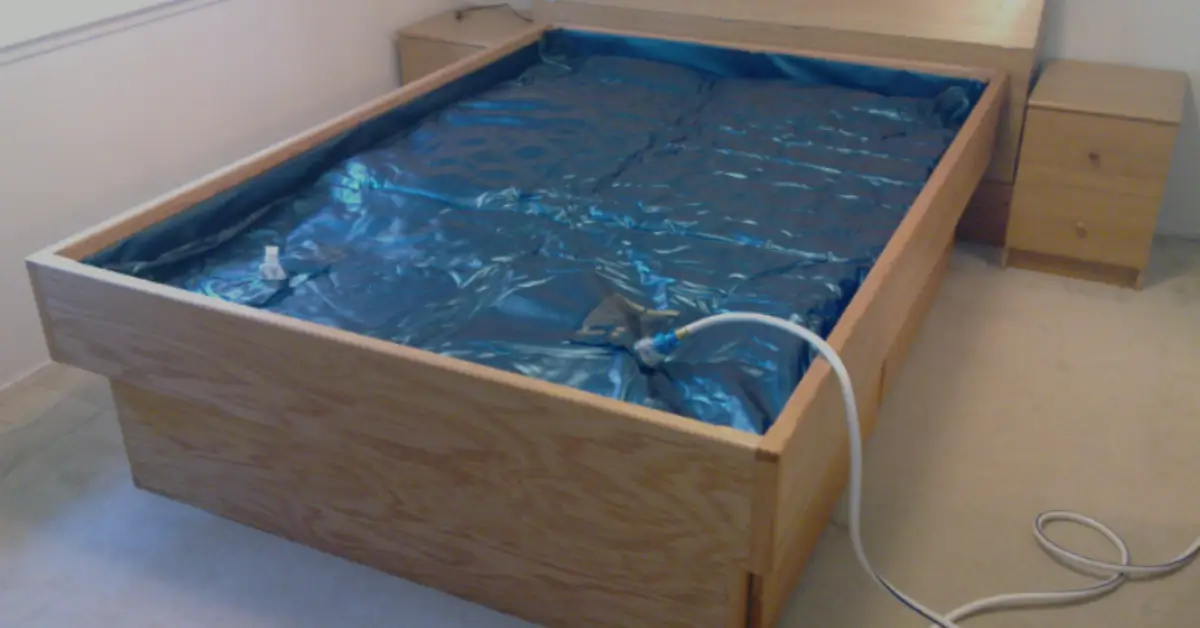Water beds have been around for decades, offering a unique sleeping experience.
While some swear by the comfort and support provided by these liquid-filled mattresses, others have reservations about their practicality and potential drawbacks.
In this article, we’ll delve into the world of water beds, examining their advantages and disadvantages to help you decide if they are a good choice for you.
Introduction to Water Beds
Water beds, also known as hydro-beds or hydromassage beds, are mattresses filled with water instead of traditional materials like springs or foam.
The water is contained within a sturdy, flexible material, typically vinyl or a similar synthetic material.
The concept of water beds was first introduced in the 1960s and gained widespread popularity in the 1970s and 1980s.
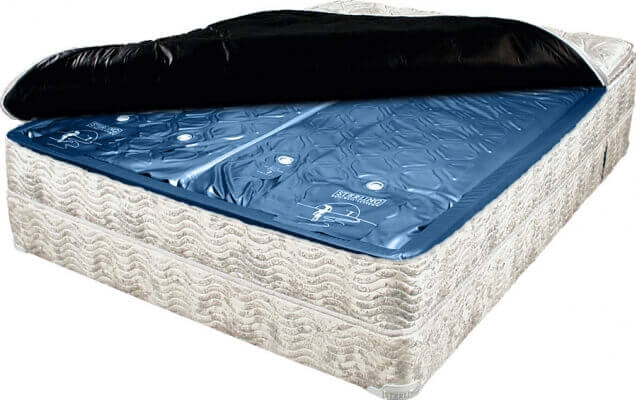
At first glance, the idea of sleeping on a mattress filled with water might seem peculiar.
However, proponents of water beds argue that the unique properties of water provide unparalleled comfort and support for the body during sleep.
Are Water Beds Good for You?
Water beds can have both potential benefits and drawbacks for an individual’s sleeping experience and overall health, so their suitability depends on personal factors and preferences.
The Potential Benefits of Water Beds
Pressure Relief and Spinal Alignment
One of the primary benefits of water beds is their ability to evenly distribute body weight and provide excellent pressure relief.
The water conforms to the shape of your body, ensuring that your weight is distributed evenly across the mattress.
This can help alleviate pressure points and reduce the risk of developing bedsores or discomfort, particularly for individuals who spend extended periods in bed.
Additionally, water beds are often praised for their ability to promote proper spinal alignment.
The water’s conforming nature allows your spine to maintain its natural curve, which can help reduce back pain and improve overall posture.
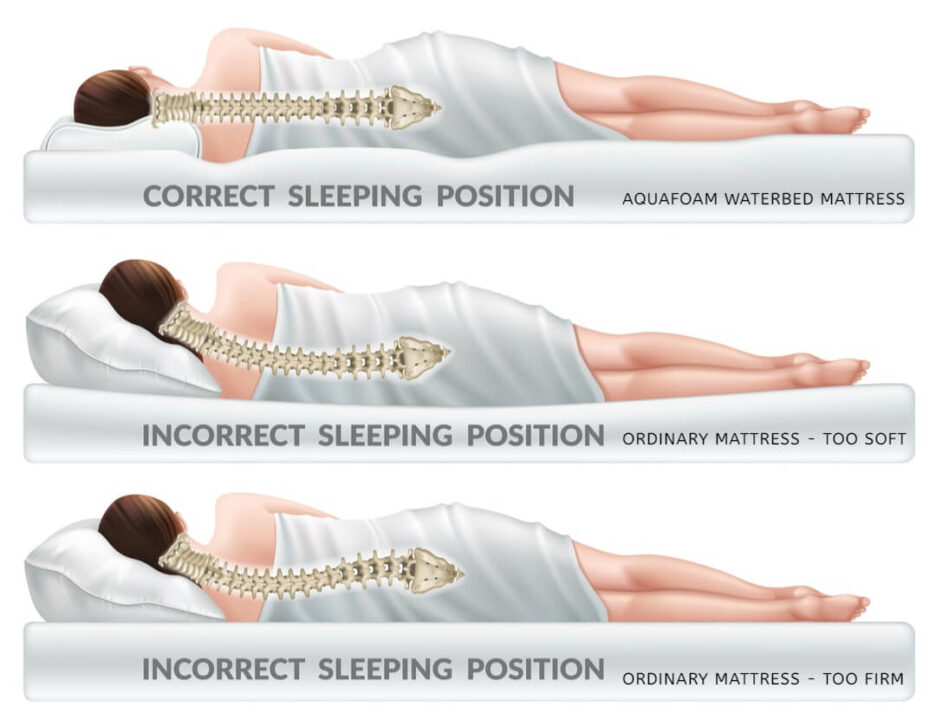
Motion Isolation and Reduced Partner Disturbance
Water beds are known for their exceptional motion isolation capabilities.
When one partner moves or gets in or out of bed, the motion is absorbed by the water, minimizing disturbance to the other partner.
This feature can be particularly beneficial for couples with different sleep schedules or for those who share a bed with a restless sleeper.

Temperature Regulation
Some water beds are equipped with heating and cooling systems that allow you to adjust the temperature of the water to your desired level.
This feature can be particularly useful for individuals who have difficulty regulating their body temperature during sleep or those who experience hot flashes or night sweats.
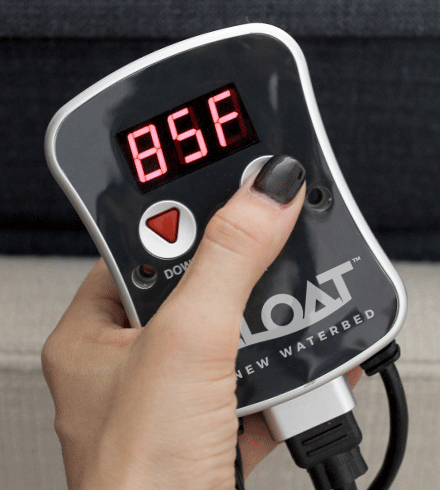
Potential Hypoallergenic Properties
Water beds are often touted as a hypoallergenic option for individuals with allergies or sensitivities to traditional mattress materials.
Since water beds do not contain materials like foam or fabric, they may be less likely to harbor dust mites, mold, or other allergens commonly found in traditional mattresses.
Potential Drawbacks of Water Beds
While water beds offer several potential benefits, they also come with some drawbacks that should be considered.
Maintenance and Potential Leaks
Water beds require regular maintenance to ensure proper functioning. The water needs to be periodically changed, and the mattress should be checked for leaks or other issues.
If a leak occurs, it can lead to water damage and potentially create a breeding ground for mold or mildew.
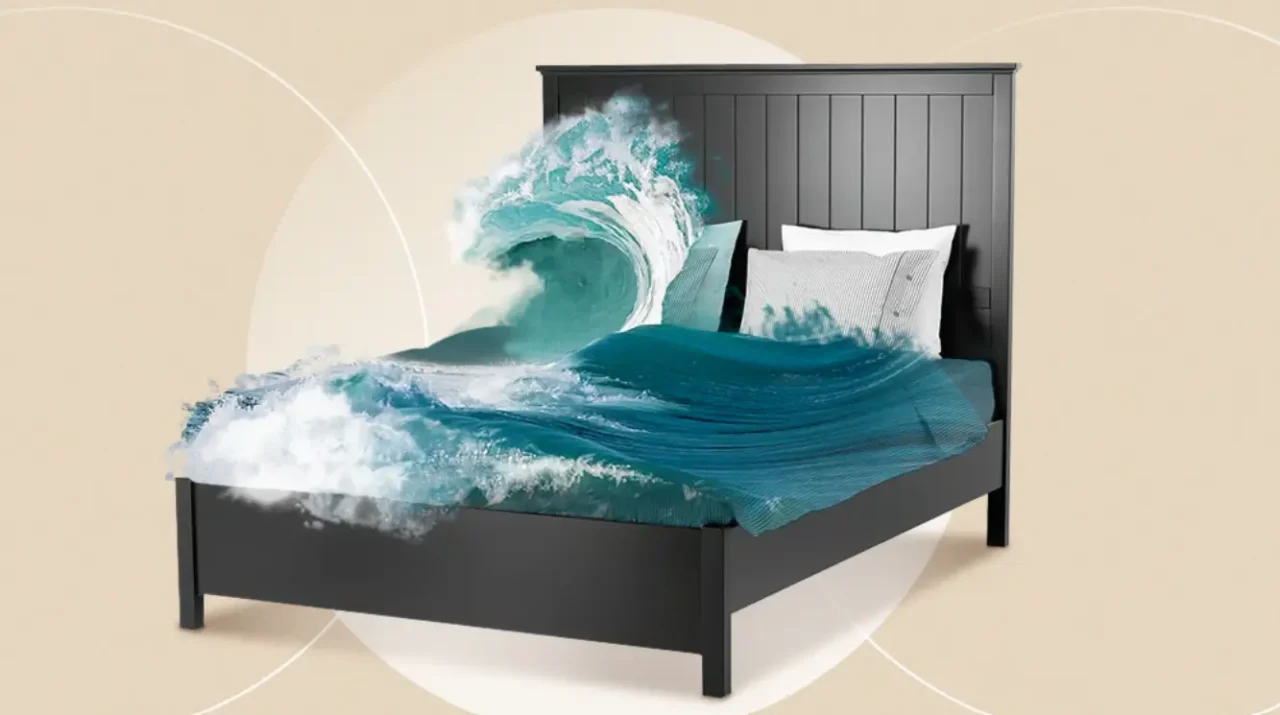
Limited Mobility and Accessibility
Getting in and out of a water bed can be more challenging compared to traditional mattresses, especially for individuals with mobility issues or disabilities.
The water’s motion can make it difficult to maintain balance when getting into or out of bed.
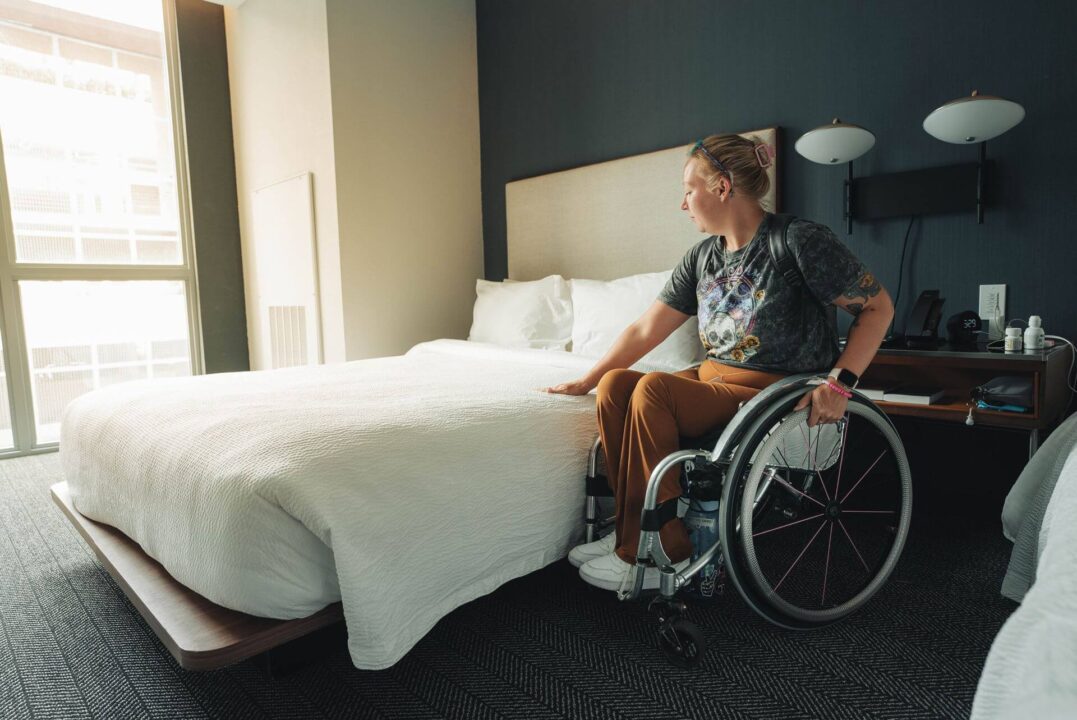
Potential for Disrupted Sleep
While water beds are designed to minimize motion transfer, some individuals may find the constant movement of the water is disruptive to their sleep.

The gentle rocking motion can be soothing for some, but others may find it unsettling or even seasickness-inducing.
Increased Electricity Costs
Water beds with heating and cooling systems can consume a significant amount of electricity, potentially leading to higher energy bills.
This is an important consideration, especially in areas with high electricity costs or for those concerned about their environmental impact.
Limited Availability and Higher Costs
Water beds are not as widely available as traditional mattresses, and finding suitable bedding and accessories can be a challenge.
Additionally, water beds tend to be more expensive than their conventional counterparts, both in terms of initial purchase and ongoing maintenance costs.
Are Water Beds Good for You?
When deciding whether a water bed is a good choice for you, it’s essential to carefully consider your personal preferences, lifestyle, and specific sleep needs.
Here are some factors to take into account:
- Health and mobility: If you have mobility issues or certain health conditions that make it difficult to get in and out of bed, a water bed may not be the best option.
- Sleep preferences: If you prefer a firm or more supportive mattress, a water bed might not provide the desired level of support.
- Household considerations: Water beds can be heavy and challenging to move, which may be a concern if you anticipate relocating frequently or have limited living space.
- Budget: Be prepared for the potentially higher initial cost and ongoing maintenance expenses associated with water beds.
Ultimately, the decision to choose a water bed should be based on your individual needs and preferences.
If you prioritize pressure relief, motion isolation, and temperature regulation, a water bed may be worth considering.
However, if you value ease of mobility, low maintenance, and a more traditional sleeping experience, a conventional mattress might be a better fit.

Remember, it’s always a good idea to try out a water bed firsthand, if possible, before making a purchase.
Many mattress stores offer water bed models for testing, allowing you to experience the unique sensation of sleeping on a liquid-filled mattress.
Conclusion
Water beds offer a unique sleeping experience with potential benefits such as pressure relief, motion isolation, and temperature regulation.
However, they also come with potential drawbacks like maintenance requirements, limited mobility, and increased energy costs.
Whether a water bed is good for you depends on your individual preferences, health considerations, and lifestyle factors.
By carefully weighing the pros and cons, you can make an informed decision about whether a water bed is the right choice for your sleep needs.

